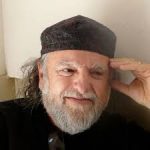BLOG from the Holy Land #4 – Sept. 11th, 2016
Yesterday during a four-hour meeting with Eliyahu Maclean, a founder of the Abrahamic Reunion, and a director of our Holy Land programs, I was struck so deeply by the dangers presented by a desire to help without understanding complex cultural and religious differences. Perhaps the USA is learning this difficult lesson from Iraq, Libya, Afghanistan and Syria, to name a few. Of course the desire to help can be most helpful and charitable but it must be accompanied by an unfettered ego not bound by self-interest, even noble self-interest, and a strong desire and ability to listen. This is the primary reason why political processes take so long and are often so ineffective.
What can we do in the Abrahamic Reunion is to reduce the chance that our helping doesn’t produce the opposite effect. What is the over-arching ego trap we must not fall into and how can we practice the level of listening needed for compassionate success? I’ve so often learned here that the spaces, the unspoken places in conversation often contain more valuable information than what is communicated overtly. Pir Vilayat Khan often spoke and wrote about that which transpires through that which appears and this is the rare talent that must be applied here. Many can hear the outer and act on the information but the mystic, the lover, the truly compassionate one can hear the inner voice of the other. Again and again we see the misunderstandings created by not being able to communicate or hear the real message behind the words.
Can we learn to listen in this way? It seems to require great discipline and love. Our personal ego structure has often trained us to be protective and armored. But to truly help we need to not weigh the balance of our needs and goals with that of the other but strive to know what will create real balance and harmony. This is not a mental process alone but an intuitive awareness that can only be developed in one’s feeling faculties. Not a blind sentimentality that so often turns the desire to help into a morass of confusion but the clear heart developed by real meditation, prayer, and constantly questioning our own motivations and impulses.
This is the true peace-making and it requires a training not easily available. It can be taught but it simultaneously must be caught. We are beginning to see an additional role for the Abrahamic Reunion beyond the need to overcome separation. Because of our combined role as facilitator of peace through the means of religion we can also create venues where the potential peace bringers of the future can learn to both listen and learn how to help in ways that bring about lasting healing rather than chaos.
This level of peace bringer has existed in human history when the needs of humanity demanded. Certainly today, when we see chaotic responses to our environmental and societal problems, we must begin to teach this kind of helpfulness that is capable of actually bringing peace.

 Previous Post
Previous Post